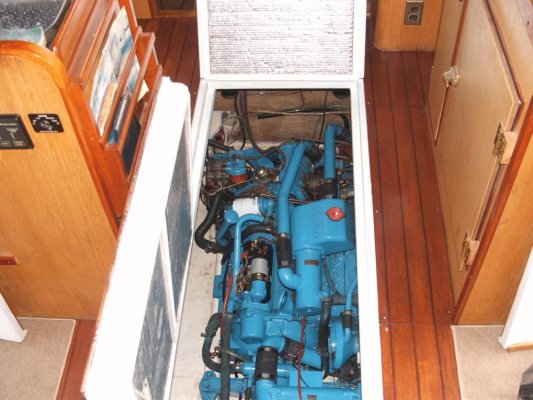Frank60
Veteran Member
- Joined
- Mar 16, 2020
- Messages
- 53
- Location
- United States
- Vessel Name
- About Time
- Vessel Make
- Meridian 368
I'm searching for a 40 to 50 ft trawler. All of my experience is with gasoline engines. Looking at a few mid-2000's boats. At what point should I start getting concerned about the number of hours on the engines? I'm seeing some in the 1,000 to 1,500 range and others in the 3,500 to 4,500 range. Unfortunately the boats that I like are on that higher end. When would you walk away just based on engine hours?
For example, one is a Grand Banks, Caterpillar engines, 3,200 hours. Another is a DeFever CMY with over 4,000 hours. It seems that the prices are somewhat taking into account the number of hours in comparison to other listings but not dramatic discounts.
I guess that at some point the engines need to be re-built? What does that entail for a diesel?
Appreciate any thoughts on this.
For example, one is a Grand Banks, Caterpillar engines, 3,200 hours. Another is a DeFever CMY with over 4,000 hours. It seems that the prices are somewhat taking into account the number of hours in comparison to other listings but not dramatic discounts.
I guess that at some point the engines need to be re-built? What does that entail for a diesel?
Appreciate any thoughts on this.

